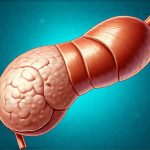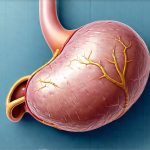Bile, often overlooked in discussions about digestion, is a truly remarkable fluid produced by the liver and stored in the gallbladder. It’s far more than just a digestive aid; it’s a key player in nutrient absorption, waste removal, and overall metabolic health. Many people don’t realize how intricately linked bile production and function are to their well-being, and issues with bile flow can quietly contribute to a wide range of symptoms. Understanding this often-underappreciated component of our physiology is the first step towards supporting optimal digestive function and holistic health.
The process of digestion begins even before food enters your mouth – anticipation plays a role! But once food arrives, it’s a complex cascade of mechanical breakdown and chemical digestion. While enzymes are frequently highlighted, bile’s contribution to this process is essential, particularly when it comes to fats. It acts as an emulsifier, breaking down large fat globules into smaller droplets that are far easier for digestive enzymes to work on. This isn’t just about what we digest; it’s also about how efficiently we do so, and bile significantly impacts absorption rates of vital nutrients. Without adequate bile production or flow, our bodies struggle to process fats effectively, potentially leading to discomfort, deficiencies, and a host of other health concerns.
The Composition and Production of Bile
Bile isn’t a single substance; it’s a complex mixture comprised primarily of bile acids (also called bile salts), cholesterol, phospholipids, bilirubin, water, and electrolytes. These components work synergistically to carry out bile’s diverse functions. Bile acids are the most crucial component, responsible for emulsifying fats. Cholesterol is an essential structural component of cell membranes and hormones but can also contribute to gallstone formation if levels become imbalanced. Bilirubin, a waste product from red blood cell breakdown, is excreted through bile, helping the body eliminate toxins.
The liver constantly produces bile, though its production rate fluctuates depending on dietary fat intake. When food containing fats enters the small intestine, it stimulates the release of cholecystokinin (CCK), a hormone that signals the gallbladder to contract and release stored bile into the duodenum – the first part of the small intestine. This timing is crucial; having pre-made bile ready to go allows for rapid fat digestion as soon as food arrives. The liver can produce between 400-800ml of bile per day, showcasing its constant work in supporting our digestive process.
Once bile has done its job in the small intestine, a remarkable process called enterohepatic circulation occurs. Over 95% of the bile acids are reabsorbed in the ileum (the final section of the small intestine) and returned to the liver via the portal vein. This efficient recycling system minimizes the amount of bile acids the liver needs to produce de novo, conserving resources and maintaining a steady state. The remaining 5% is excreted in feces, requiring replenishment through hepatic synthesis.
Factors Affecting Bile Production and Flow
Several factors can disrupt optimal bile production or flow, leading to digestive issues. Diet plays a significant role. A diet high in processed foods, refined sugars, and unhealthy fats can burden the liver and impair its ability to produce healthy bile. Conversely, a diet rich in fruits, vegetables, and lean proteins supports liver health and efficient bile production.
- Stress: Chronic stress elevates cortisol levels, which can impact liver function and bile flow.
- Medications: Certain medications, particularly statins and some antibiotics, can interfere with bile acid synthesis or absorption.
- Gallstones: These hard deposits forming in the gallbladder can obstruct bile ducts, hindering bile release and causing pain.
- Liver disease: Conditions like hepatitis or cirrhosis directly impair liver function, impacting bile production.
Maintaining a healthy lifestyle with stress management techniques, a balanced diet, and mindful medication use are all crucial steps towards supporting optimal bile flow. Regular physical activity also contributes to overall metabolic health, positively influencing liver function.
The Link Between Bile and Nutrient Absorption
Beyond fat digestion, bile plays a critical role in the absorption of other essential nutrients. Fat-soluble vitamins – A, D, E, and K – require bile for their effective absorption. Without sufficient bile, these vital vitamins aren’t properly absorbed, potentially leading to deficiencies even if dietary intake is adequate. This can have far-reaching consequences as these vitamins are involved in numerous bodily functions including immune health, vision, bone density, and blood clotting.
The absorption of cholesterol itself relies on the presence of bile acids. Bile acids bind to cholesterol in the small intestine, aiding its absorption. However, this process also means that impaired bile flow can lead to increased cholesterol levels in the body. Furthermore, bile aids in the absorption of long-chain fatty acids which are vital for brain health and hormone production.
Bile’s Role in Detoxification
The liver is the primary detoxification organ in the body, and bile serves as one crucial pathway for eliminating waste products. Bilirubin, a byproduct of red blood cell breakdown, is excreted through bile into the intestines and eventually eliminated from the body. Additionally, toxins absorbed from the gut – including environmental pollutants and metabolic waste – can be bound to bile acids and excreted.
This detoxification function highlights the importance of healthy bile flow for overall health. When bile flow is sluggish, these toxins can be reabsorbed back into the bloodstream, placing an additional burden on the liver and potentially contributing to systemic inflammation. Supporting healthy bile flow through dietary choices and lifestyle modifications can therefore contribute to a more effective detoxification process.
It’s important to remember that this information is for general knowledge and informational purposes only, and does not constitute medical advice. Always consult with a qualified healthcare professional for any health concerns or before making any decisions related to your health or treatment.


















